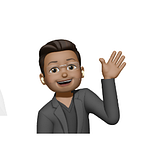Roadmap for becoming a Frontend Developer
In this article, we will take a look at a roadmap that can be followed to become a front-end developer. A roadmap discusses the path from beginner to advanced levels and all the technologies to learn to become a successful front-end developer.
What is Front-end Development?
Front-end web development is the practice of creating HTML, CSS, and JavaScript for a web or mobile application so that a user can see and interact with them directly. The challenge associated with front-end development is that the tools and techniques used to create the front-end constantly change. Hence, the developer needs to be aware of how the field is constantly developing.
The main responsibility of the Front-End Developer is the User interface.
Front-end development is what you would refer to as the client side of development. Front-end development is all about analyzing designs and codes as well as debugging applications. The front-end or client-side development objective is to provide your users with a seamless experience of using a website.
Overall, the future looks bright for anyone who wants to become a front-end developer.
Stick around to find out the important things a front-end developer should know about.
Things to Learn?
To be a successful Front-end Developer. Some important skills are required.
- HTML5 and CSS
Hypertext Markup Language (HTML) and Cascading Style Sheets (CSS) are a website’s nuts and bolts. While HTML gives structure to web pages, CSS helps style the HTML elements with colour, fonts, typeface, and more.
Mastering HTML5 and CSS is a MUST. Honestly, not having it at your fingertips is unacceptable for a front-end developer. HTML, the key structural component of any website, together with CSS, the styling part, already allows you to build some basic websites and applications.
2. JavaScript
This client-side programming language lets you add interactive features to a website, including polls, slideshows, and forms. JavaScript also offers support for dynamic elements, including, but not limited to, page animation, scrolling, audio, and video.
Frameworks
Knowing the language itself is one thing, but knowing how to work within a framework is an additional skill, and you can’t do much without it, especially if you want to create a real project for a client.
1.JavaScript Frameworks
React.js: React is a front-end open-source JavaScript library used to create interactive UIs (User Interfaces), which helps improve the speed of applications. It is one of the simplest frameworks to learn and was developed by Facebook to resolve the code maintainability issues due to constant addition and improvements. It is still maintained by Facebook and other individual front-end engineers.
Angular.js: Angular is a modern TypeScript-based, open-source framework and one of the top-rated software development tools. Angular features Directives allow developers to program special behaviors of the DOM, making it possible to create rich and dynamic HTML content.
2. CSS Frameworks
Bootstrap is a free and open-source CSS framework directed at responsive, mobile-first front-end web development. Bootstrap is considered to be one of the best CSS frameworks due to its responsive design. It contains CSS- and JavaScript-based design templates for typography, forms, buttons, navigation, and other interface components. They have an extensive set of documentation, examples, and demos to get you started quickly with responsive web development.
Soft skills
1. Problem Solving
Dealing with a project and each small task is an everyday struggle of a front-end developer, but these issues are solved step by step. However, if something doesn’t work on the website, the front-end developer has to rectify it! Solving the problems and making it all work should be the mindset of each professional developer.
2. Teamwork
Teamwork is usually a part of the front-end developer’s everyday life and they need to be good at it. Even if you work as a freelance dev, you’ll have to communicate well with the clients and work with them on the project to some extent. Knowing how to handle a team, support other developers, and ask for help when needed make the workflow smoother, and in the end, you deliver the end product faster.
3. Good Communication
Effective communication is necessary when you work with other people. What is also important is the ability to state and communicate what you have in mind — writing documentation that others can read and understand is highly appreciated.
Conclusion
Front-end development can look like it’s easy at first glance, but in reality, it is a complex field that adapts daily to the latest advances in technology and the needs of users.
In the End, There are many skills that you will need to learn. This roadmap provides a great starting point, but remember that learning is a never-ending process. Stay motivated and always be willing to learn new things, and you’ll be well on your way to a successful front-end developer career.
